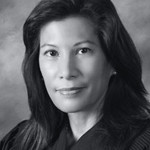The number of Los Angeles County civil cases facing delays of more than two years has tripled in the wake of budget cuts, according to Carolyn Kuhl, Los Angeles Superior Court’s presiding judge, She also tells NPR station KQED that “.. L.A. made 10 percent across-the-board cuts to court services in 2012, but it wasn’t enough. So the next year, they made further cuts. In all, 79 courtrooms were shuttered, limiting where people can contest traffic tickets or adjudicate small claims cases. The court has also cut mediation services and eliminated court reporters in civil cases.”
Kuhl noted that “… the setbacks are especially disheartening because she and others have worked for decades to shorten the amount of time it takes to resolve civil cases… and to see those gains essentially be lost — as we now have delays such that the number of cases pending over two years has tripled — is very discouraging.”
The judge’s comments are part of increased media coverage as the state budget process nears its annual decision-making point. Read the story here.


